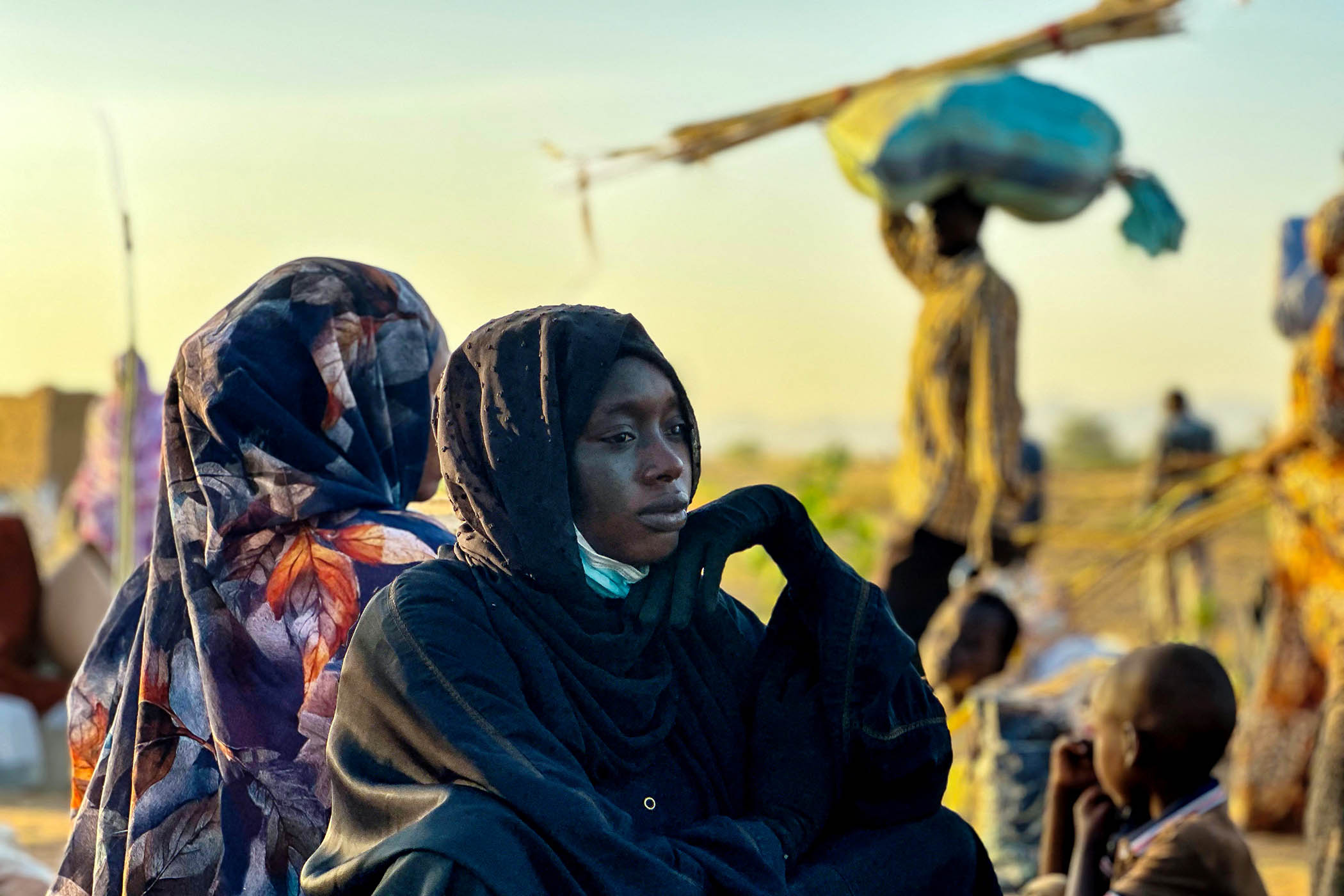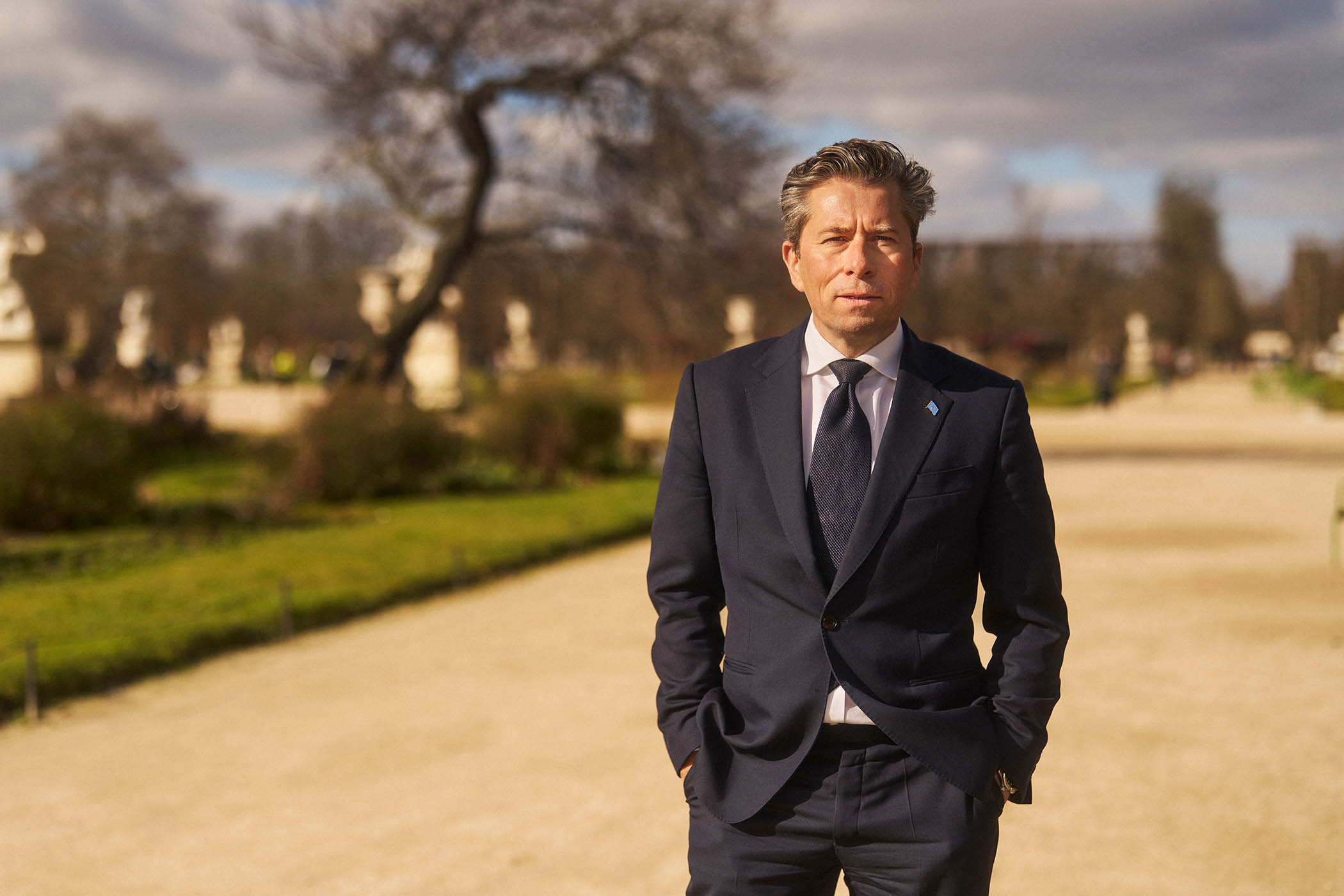Port Sudan
Landed back in Sudan this morning, bleary eyed after four flights from the UK. A year ago, here on my first mission as UN humanitarian chief, the conflict had already left half the population in need of life-saving aid. Now it’s worse. Nearly two in three people require humanitarian help and famine is confirmed in North Darfur’s capital El Fasher and Kadugli in South Kordofan.
This week my mission is clear: unlock access for our teams to reach those worst hit. And to demand a more robust international response to the atrocities – to stop the fighting and support relief efforts.
I’m also here to understand the perils that civilians face every day in Darfur, a region a little more than twice the size of the UK and the epicentre of suffering in the world right now. I’ll set off on the long journey to the region first thing in the morning after marathon meetings today in Port Sudan with the Sudanese authorities, top diplomats and the humanitarians working full throttle to save lives across the battle lines.
El Fasher’s youngest are paying the highest price. Children carrying other children to safety
El Fasher’s youngest are paying the highest price. Children carrying other children to safety
Earlier today, I huddled with the foreign ministers of Sudan and Egypt to agree the urgent steps we can take to reach people in need across the country. My discussion with the leader of Sudan, General Al-Burhan, was practical. I pushed for a clear commitment to support us getting aid to wherever it’s needed, to improve access and, importantly, to keep talking. I repeat this to the media outside, to bake it in.
Once in Darfur, I’ll meet the Rapid Support Forces (RSF). I need complete access throughout Sudan to operate and to protect civilians, including aid workers. It’s just over two weeks since the RSF took over El Fasher, after a brutal, months-long siege. Humanitarians are desperate to reach people in the city, but we need guarantees of safety.
People think the UN is a bunch of headless chickens. But we have coordinated a surge in high-level engagement. Carl Skau, the deputy head of the World Food Programme, and Amy Pope, who runs the International Organization for Migration, are also here in Sudan. We are in constant WhatsApp contact to make sure we get what we need.
Wednesday 12 November
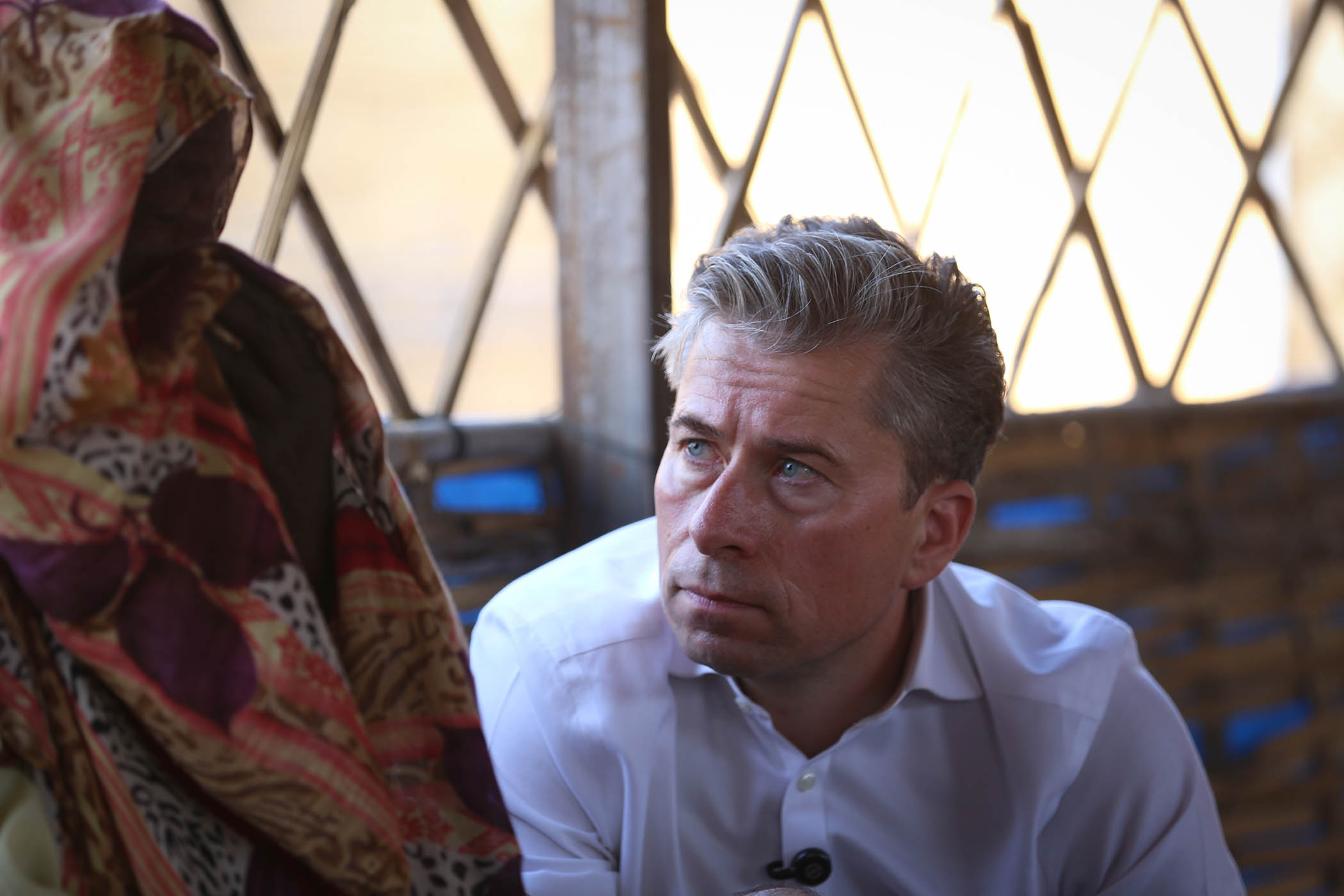
Geneina, West Darfur
The only way to reach Darfur is to leave Sudan and re-enter in the west via Chad. Getting to the Adré border crossing, a lifeline for humanitarian aid into Darfur, meant a series of flights with the indispensable UN Humanitarian Air Service, but the journey deeper into Darfur will be solely by road.
Newsletters
Choose the newsletters you want to receive
View more
For information about how The Observer protects your data, read our Privacy Policy
Our friends from the Norwegian Refugee Council have kindly put us up for the night in their guesthouse in Geneina. We talk through the challenges they face. Tomorrow, we’ll head east. In all the places we’re able to reach on this road trip, I want to demonstrate that the UN is not a ship built to stay in harbour. We must be out there delivering, side by side with the people that we’re here to serve. I’m in close contact with the head of UN security – he is a great ally in getting us further than we should get. But he’s clear with me saying, we will let you run risks to get the aid through, but don’t push it.
I have to balance meeting civilians and hearing from them while avoiding being part of a propaganda spectacle
I have to balance meeting civilians and hearing from them while avoiding being part of a propaganda spectacle
A call from our humanitarian hoordinator in the Occupied Palestinian Territory, Ramiz Alakbarov, is a stark reminder that Gaza must also remain at the top of my agenda. Winter is coming, and there’s an urgent need to bring tents into the Gaza Strip. I take to social media to stress that remaining restrictions must be lifted to urgently get more aid in. Our scale-up since the ceasefire must press on.
I know the following days will be defined by endless hours on the road. Thankfully, we have a satellite connection with us, which means I can stay in touch with colleagues and capitals on WhatsApp and Signal even from the most remote parts of Darfur. We work through the different time zones of our major offices and the crises we deal with. It is a long way from Thomas Jefferson, America’s third president, commenting “we haven’t heard from our Ambassador in Spain for two years. If there is no word next year we should write to him”.
Thursday 13 November
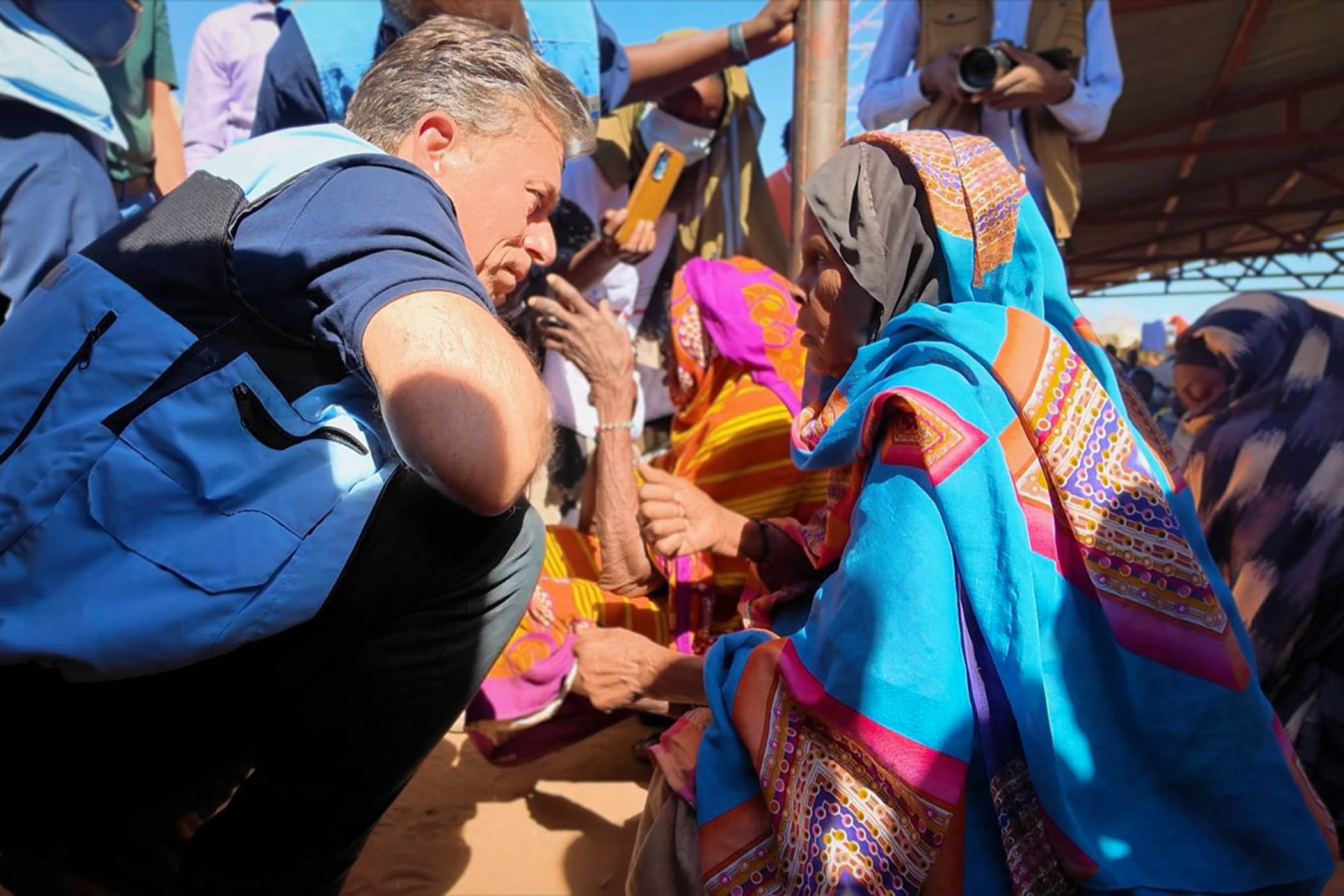
Geneina to Golo, Central Darfur
Today was epic. And gruelling. Twelve hours on the road. Dust clouds, bone-rattling bumps and stretches of rock and sand. We are in a convoy of Land Cruisers, with the lead vehicle flying the UN flag. I put out social media on the journey, because that’s the story.
We make it from West Darfur to Central Darfur, to Golo. Here we will spend the night courtesy of our friends at Save the Children. I get my bucket of water on arrival, to wash and shave in the morning. The mosques, cockerels and donkeys sound the alarm bracingly early.
Today’s travels took us through RSF-controlled Zalingei and Nertiti. An astonishing number of checkpoints makes this journey a tense, start-stop experience – there are about 80 road blocks manned by RSF fighters along the way from Adre to Tawila. A Unicef convoy travelling just a few hours behind us was caught up in an air strike on several commercial vehicles. Luckily, no one was injured, but the car took some shrapnel. Our brilliant security colleague jumps down at each stop to negotiate, arm-twist and cajole us through. I ask him at one checkpoint how old the soldier is. With a sigh he tells me 14 years young.
I’m in constant contact with the secretary-general. He wants to know how the mission is unfolding, what more can be done. He sends a stream of heartening messages – “full steam ahead. But stay safe”. Yes, boss, but they might not be the same thing, I think… In the car, Denise Brown, our Humanitarian Coordinator in Sudan, shares practical ideas on how we can be tougher and more creative in getting aid through. She’s one of our most experienced and courageous humanitarians, renowned for facing down obstacles and speaking truth to power during her last mission in Ukraine.
We have received clear assurances – backed by the international community – that humanitarians can work everywhere we are needed in Sudan. We want to show it is possible. Driving this route tests that, even if we know that the security clearance won’t be given to get all the way to El Fasher. I listen to some Chopin and grip the vehicle’s door handle to try to stop the lurching.
Friday 14 November
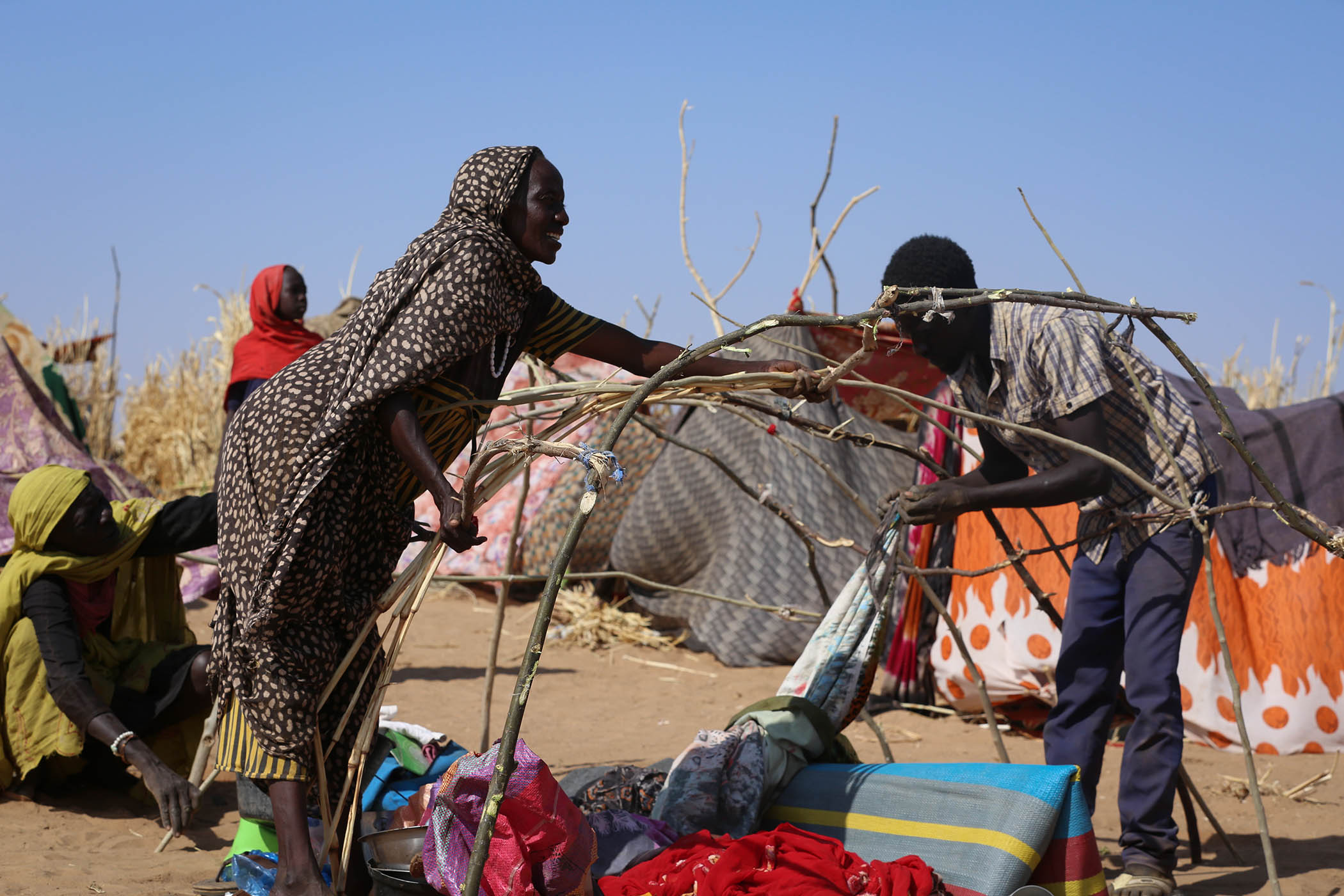
Golo to Tawila
We travel to Tawila, where the Daba Naira camp is absorbing wave after wave of families who have fled El Fasher – some holding together, many scattered by the chaos of war – running the gauntlet of violence, abduction and extortion along the way. Some had escaped with their babies when the Zamzam refugee camp was attacked earlier this year. Then El Fasher came under fire and they fled again. Tawila is now a safe haven for tens of thousands. These women want to tell their stories. Their testimonies are devastating.
“We were besieged from all directions,” one tells me. “Water sources, markets and mills were targeted,” says another. She described drones overhead and said, “No food could come in at all.” Another said: “We were bombarded and our children died. If you went to the market your child would not return.”
This is what a city starved of aid, safety and hope looks like: civilians trapped, terrorised, cut off. And no humanitarians able to reach them.
But there is courage in spades. In Tawila, I meet the frontline responders – local volunteers and NGOs holding the response together. Many are themselves displaced from El Fasher. When people say, “Look for the helpers,” you only need to look here.
Everywhere we went, one gruelling fact emerged: many people simply aren’t getting out of El Fasher. That raises deeply troubling questions about their fate.
A weird thing about these missions. One moment you are talking to people who have endured unspeakable days. Then you are joking with kids as they muck around in their English or my Arabic. Always dozens of cameras on every interaction. Does it really help them that I am here? I’m conscious of the need to find the testimony that might cut through to a distracted world. But also to not lose the individual empathy, human connection.
Saturday 15 November
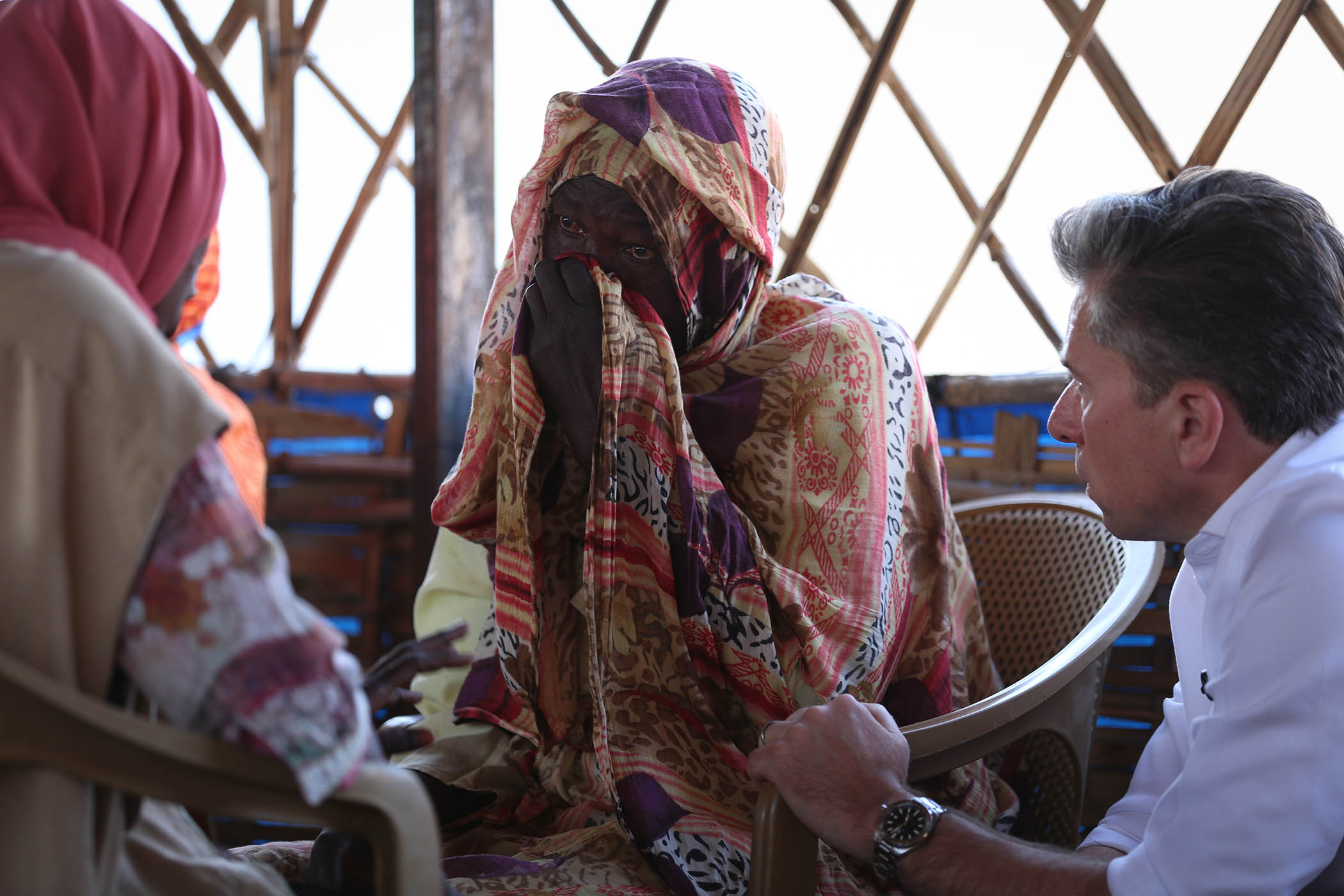
Tawila to Korma to Tawila
We drove to the Silk camp in Korma, around 22 miles (35km) from El Fasher – one of the few places civilians can still reach. For us to get through, it took a series of negotiations with various groups, RSF commanders and local leaders. En route I check in with our humanitarian coordinator in Afghanistan about how we confront the latest effort to restrict the work of our female colleagues.
El Fasher is now the epicentre of inhumanity in this war. People’s escape routes are marked by extortion, brutality, mass executions and mass rapes. When they finally reach Korma, they are exhausted, and teams there are responding with limited supplies.
Haseena is an English teacher who fled on foot. “The war is very evil, very dangerous,” she said to me. “My eldest son was killed on 16 September. Another son’s leg was broken.” She hoped to reach Tawila for medical treatment. I told her I hoped her family would be reunited – and that her students would one day learn from her again, in safety.
El Fasher’s youngest are paying the highest price. Children carrying other children to safety. Strangers caring for babies whose parents had been killed.
In Korma, I also met with RSF representatives and set out our position: we need security guarantees for safe passage both for humanitarian teams to get into El Fasher to work and talk freely to people, and for civilians to get out of the city. They must be allowed to flee and evacuate those who’ve been injured.
We didn’t know what to expect as we arrived. The RSF had clearly choreographed a crowd of civilians with signs welcoming me. I have to balance meeting civilians and hearing from them while avoiding being part of a propaganda spectacle.
Later, speaking online with media, I relayed what survivors had told us: unimaginable violence, widespread hunger and sexual violence on a horrific scale. Aid cannot reach the people who need it most. Access to El Fasher is a matter of life or death. Time is running out.
Sunday 16 November
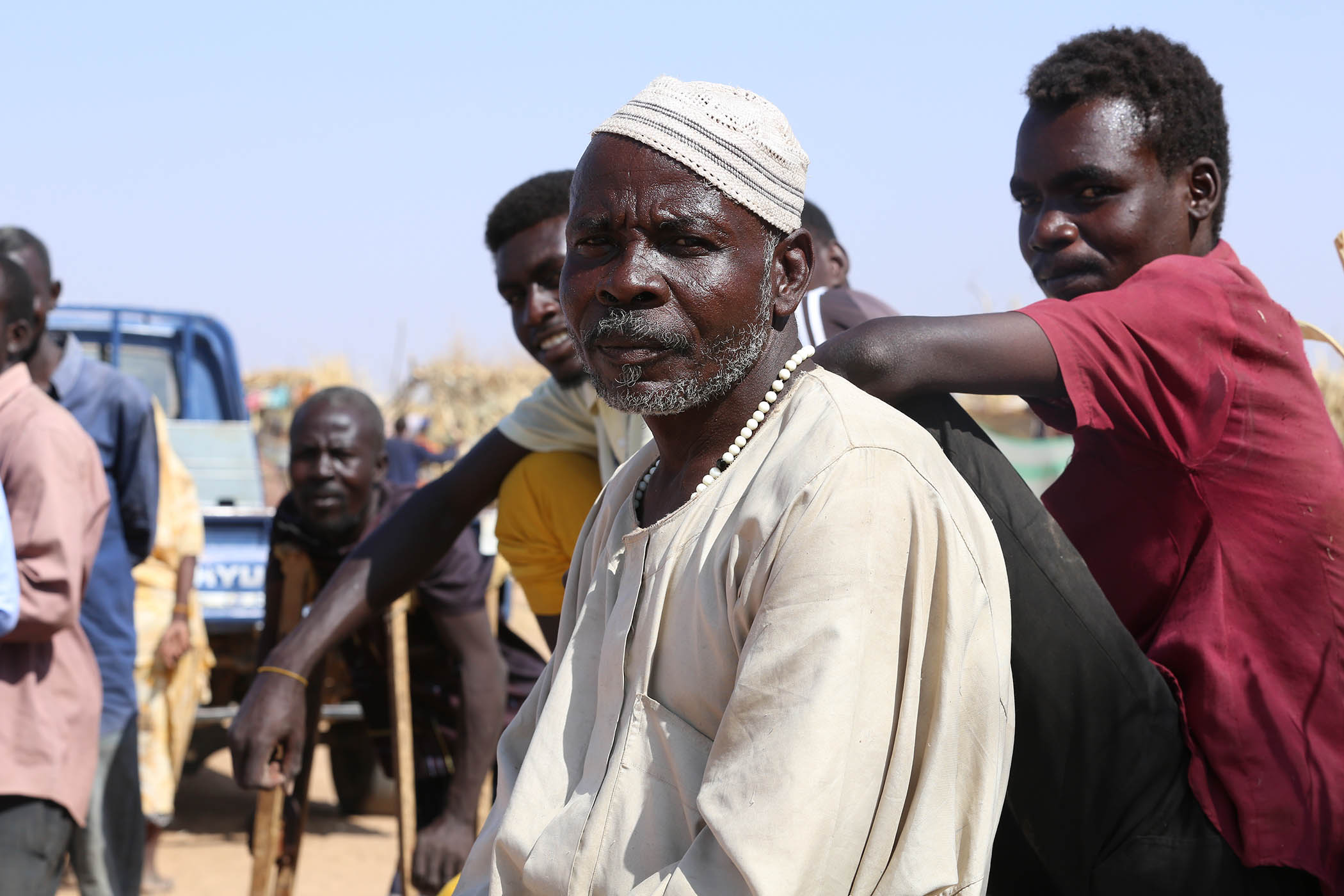
Tawila to Nertiti
From Tawila we travelled west to Nertiti, where the strain on local communities is intense. Thousands of displaced families are sharing limited food, water, shelter and medical care. Needs are rising faster than support can reach. The operation is overstretched and underfunded.
Hours on the road. I messaged my conclusions to President Trump’s Special Envoy Massad Boulos, and a bunch of foreign ministers, then escaped into listening to Ronnie Wood’s Desert Island Discs. His key message among the bangers and (pretty handy) advice on mediation is to never stop learning.
In interviews with news media, I drive home the point that without access, we are responding blindfolded. Civilians remain at extreme risk, yet the world cannot see the full extent of what they are enduring.
A friend messages me from Nir Oz kibbutz with news of returning hostages. Meanwhile, the Israeli Ministry of Foreign Affairs tweet that I should resign. I’m livid at their accusation of blood libel, but the advice is not to take the bait. Instead, I dictate another letter of protest.
This visit is tough. Maybe the toughest yet. I wrestle with the mosquito net and then play online chess with my youngest son. I have maybe six more games before he starts to beat me for the rest of my life, and I intend to relish them.
Monday 17 November
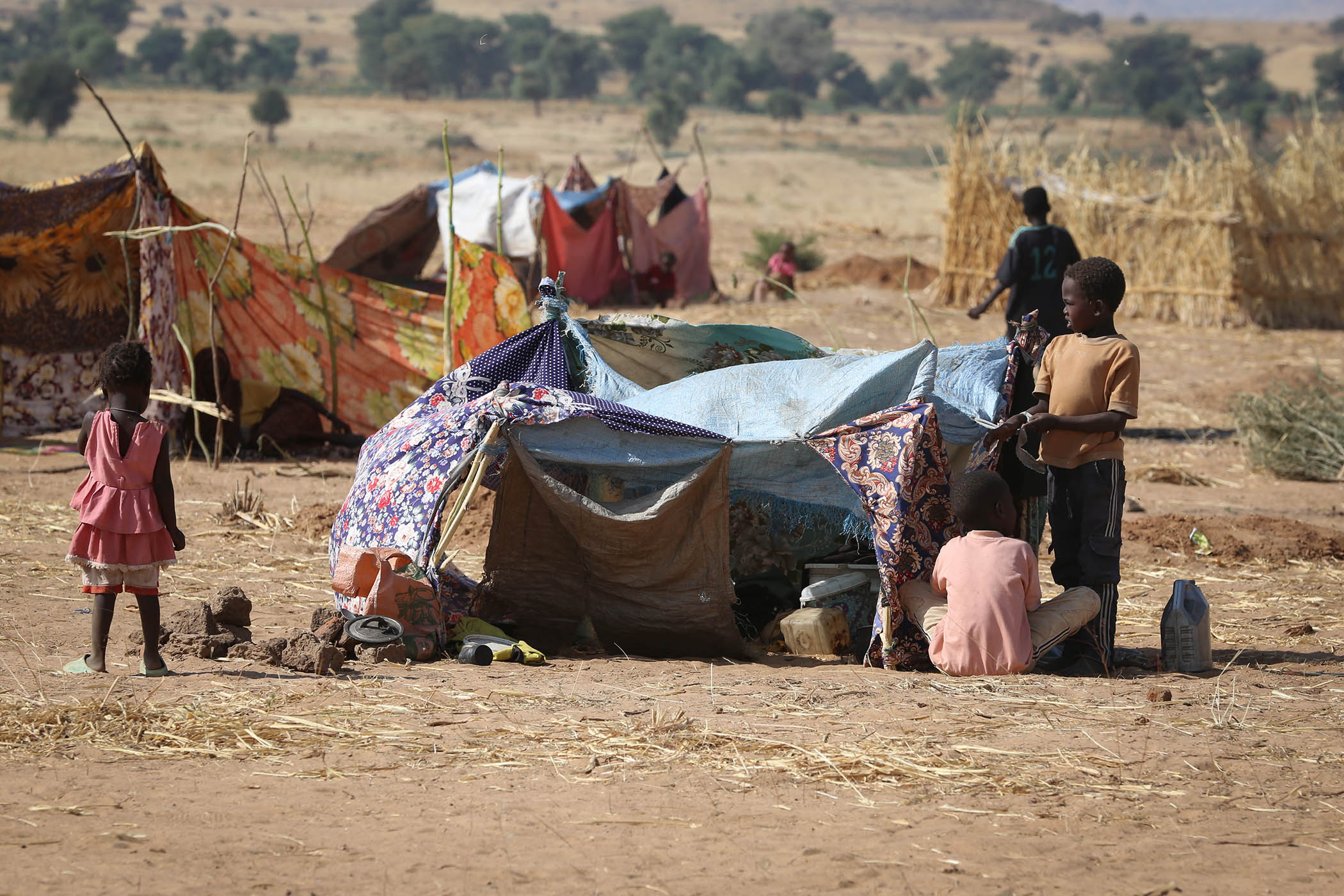
Nertiti to Adré
Crossing back into Adré brought the regional fallout into sharp focus. Since April 2023, Chad has taken in nearly 900,000 Sudanese refugees and seen more than 300,000 Chadians returning home – an immense burden for already overstretched communities.
Speaking to reporters in New York via video link, I describe Darfur as a “horror show”. Mass violence, the collapse of basic services and humanitarians barred from entering El Fasher for hundreds of days. From Adré, I also speak with global broadcasters, underscoring what we have seen throughout the week: civilians trapped, aid blocked and the urgent need to prevent further atrocities.
Sudan is now the world’s largest humanitarian crisis: nearly two-thirds of the population need aid, more than 13 million are displaced, and famine conditions are emerging. Yet the $4.2bn (£3.2bn) we need to reach people across Sudan is only one-third funded. The teams tell me of the brutal decisions – literally life and death choices – they are making each day.
We’re pulling every lever we have. The UN’s global emergency fund released $20m to keep aid moving in Tawila, Darfur and Kordofan, while our Sudan Humanitarian Fund is backing the people who carry this response on their backs: the NGOs and local responders who don’t get headlines or the chance to share their diary. One tells me that he saw a relative for the first time in months in the background of one of my videos. He had not known if she had survived.
El Fasher is a crime scene. There must be full, independent investigations and accountability for those who carry out – and order – atrocities. And we must stop the next atrocity. I recently asked the Security Council to consider where our successors will say we failed. And then to take those actions, in the words of the UN charter “… to save succeeding generations from the scourge of war…”. It is vital that the UN continues to ask itself the same question.
This is a crisis of protection and a test of what the world truly values. We need to end this death spiral. We need access. We need funding and international backing. We need all those with influence to stop the atrocities, stop the flow of arms and stop putting politics and profit ahead of human lives.
Now to N’Djamena to talk to the Chad government about how they are coping with increasing refugee arrivals. Tomorrow, I’ll have been a year in the job. Feels like 10.
Photographs by Mohamed Galal/UNOCHA, AFP/ Getty Images
